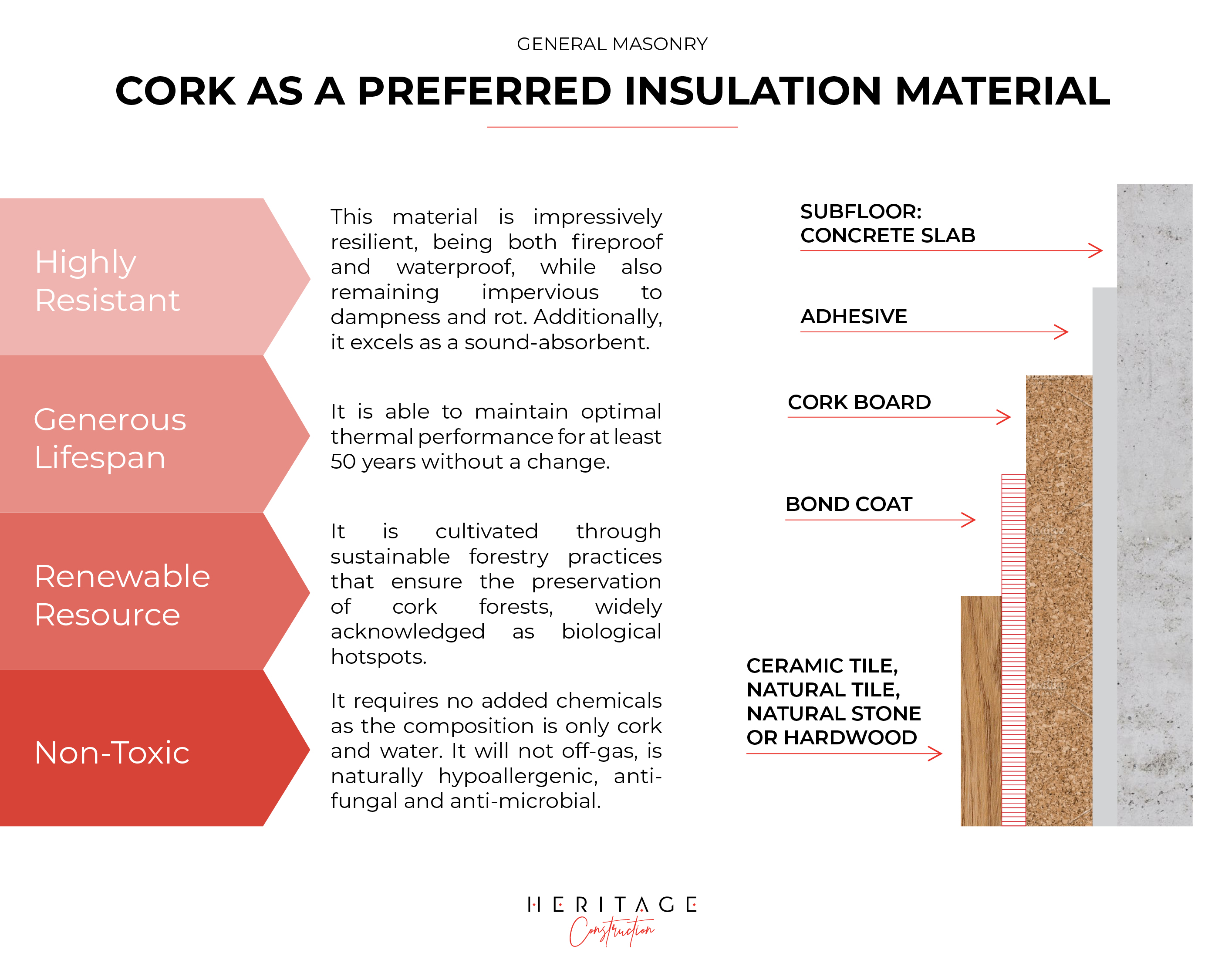Cork As A Preferred Insulation Material
Renewable Resource with a Generous Lifespan
The inception of cork occurs as the protective bark of a tree, safeguarding it against temperature extremes. This is attributed to cork’s cellular composition, featuring a myriad of minuscule cells filled with air. The air serves to effectively block most heat from penetrating through. Remarkably, the harvesting of cork not only refrains from harming the host tree but has been substantiated to enhance its overall well-being.
Cork, a renewable resource, is cultivated through sustainable forestry practices that ensure the preservation of cork forests, widely acknowledged as biological hotspots. This insulation material exhibits a commendable longevity, sustaining optimal thermal performance for a minimum of five decades without diminishing efficacy.
Non-Toxic
Distinguished by its non-toxic composition, cork insulation is devoid of any extraneous chemicals, utilizing solely cork and water in its manufacturing process. This material does not off-gas, and maintains an untainted surface that repels dust and pollutants. Its’ natural anti-fungal and anti-microbial properties render it a safeguard against harmful microorganisms, while its hypoallergenic nature ensures a health-conscious environment. Beyond its eco-friendly attributes, cork insulation boasts excellent sound-absorbing qualities.
Highly Resistant
In addition to being inherently fire-resistant, cork requires no supplementation of toxic flame retardants, a departure from conventional foam insulation. It exhibits stability across a broader temperature range compared to XPS foam, ensuring efficacy under diverse climatic conditions.
Further enhancing its practicality, cork insulation demonstrates impressive water resistance, standing as a formidable deterrent against dampness and rot. This attribute renders cork particularly pertinent for application in spaces prone to moisture, such as kitchens and bathrooms. In the realm of construction, the utilization of cork insulation emerges not only as a testament to environmental responsibility but as a sophisticated choice that harmonizes longevity, health, and efficacy in insulation practices.
